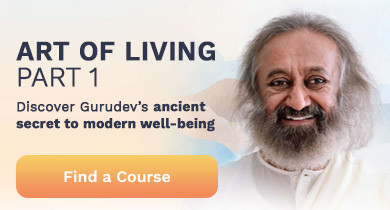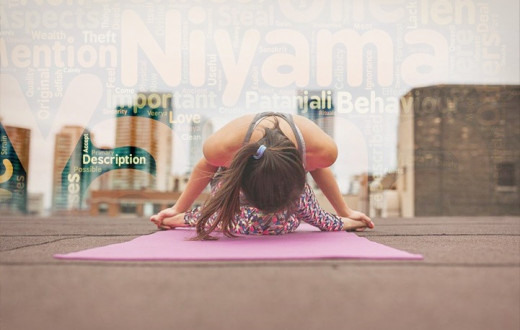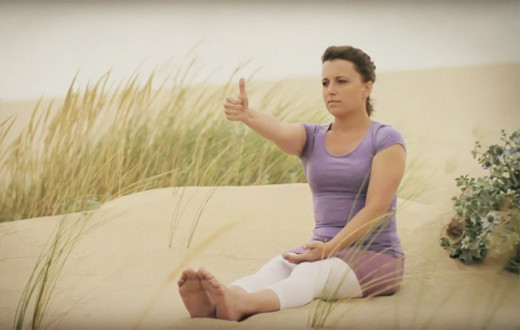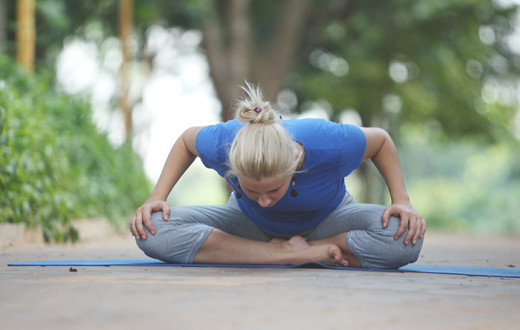By Meena Waghray | Posted: December 12, 2018
Teenage turbulence
Teenage years are turbulent, with hormones raging and the mind in confusion. The practice of yoga has been shown to help teenagers be more stable and calm through these turbulent years.
Yoga quells the fluctuations of the mind, according to the Yoga Sutras of Patanjali. In other words, it slows down the uncontrollable mental loops of frustration, regret, anger, fear, and desire that cause stress.
Stress is one of the major causes of physical diseases nowadays, so if teenagers learn early on in life how to relax and calm their mind, they’re likely to live healthier, happier and longer lives.
Yoga is a beautiful 5000-year-old practice that holds enormous relevance in the modern age. It’s being recognized more and more the world over as a go-to for stress-relief and relaxation. In this fast-paced world, yoga is for everyone. With numerous benefits in store, yoga is strongly recommended for teens in this day and age.
Benefits of yoga for teens
For teens, there are a lot of distractions in the form of peer pressure, technology and devices with which they constantly remain connected online. It’s a much more stressful time for them to grow up in. Science has shown that in deep sleep, the body repairs, rejuvenates and heals itself. The practice of yoga promotes deep sleep. This then translates into healthier bodies and increased energy for growing teens. All these things bring the teens into a healthier and more balanced life.
Yoga helps:
- Improve flexibility
- Build muscles
- Improve posture in growing teenagers, promoting healthy life
- Relax the system
- Improve balance
- Enhance focus
- Improve concentration, thus easing exam pressure
Yoga workout for healthy and stress-free teens
The Gheranda Samhita (late 17th century CE) asserts that Shiva taught 8,400,000 asanas (yoga postures). One such yoga sequence of postures is called Surya Namaskar or Sun Salutations. Each posture flows like a dance move into the next. Here’s an article showing the correct way of doing Sun Salutations.
And here’s a link to some tips on how to make the experience of Sun Salutations much deeper and more spiritually powerful.
Benefits of Surya Namaskar
Every yoga posture has multiple benefits. Sun Salutations help in better functioning of the body and mental faculties. To sum up, a few benefits are listed below:
- A good blend of warm-ups and asanas.
- Keeps you disease-free and healthy.
- Promotes balance in the body and mind.
- Improves blood circulation throughout the body.
- Strengthens the heart.
- Tones the digestive tract.
- Stimulates abdominal muscles, respiratory system, lymphatic system, spinal nerves and other internal organs.
In addition, it tones the spine, neck, shoulders, arms, hands, wrists, back and leg muscles, promoting overall flexibility.
Psychologically, it regulates the interconnectedness of body, breath, and mind, thus making you calmer and boosting your energy levels with sharpened awareness.
There are also specific benefits of Surya Namaskar for weight loss, hair, and skin.
Establishing a positive habit
For teenagers, who are under stress to perform and to be at the top of everything, this is one of the best sequences to practice. It can be done slow or fast, depending on the individual’s preference. You can start with six and work your way up to about 12 a day.
Doing the Sun Salutations at a fast pace improves cardiovascular health, and doing them slowly using the breath helps to bring the mind to a peaceful, calm, and meditative space. It’s within this space that stress is relieved in the body and mind, and one feels refreshed and alert after doing some rounds.
Check out this link for more information about Sun Salutations.
So, making yoga and meditation a habit from early on in the teenage years is imperative in today’s busy world. Teenagers today have demanding schedules and finding a natural, better way to relax and rest is strongly recommended. This ancient secret will help teenagers to live healthy, happy, and productive lives.
With inputs from Meena Waghray, Faculty, The Art of Living





























